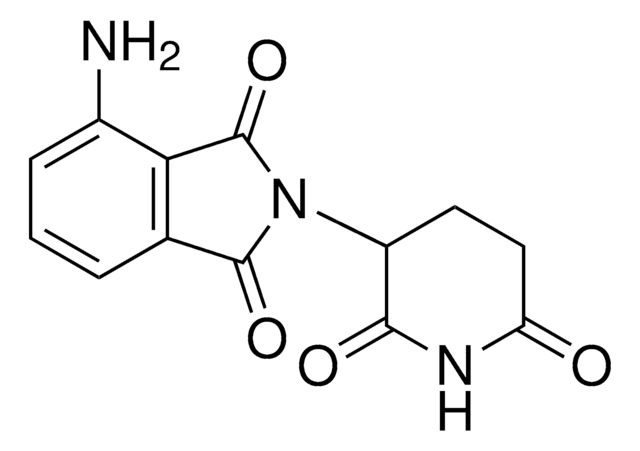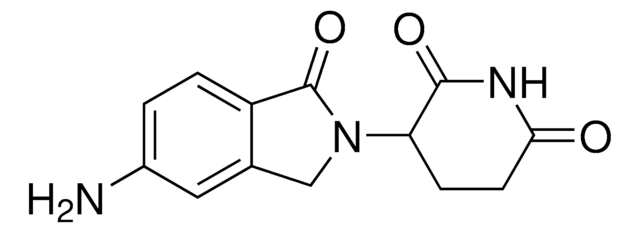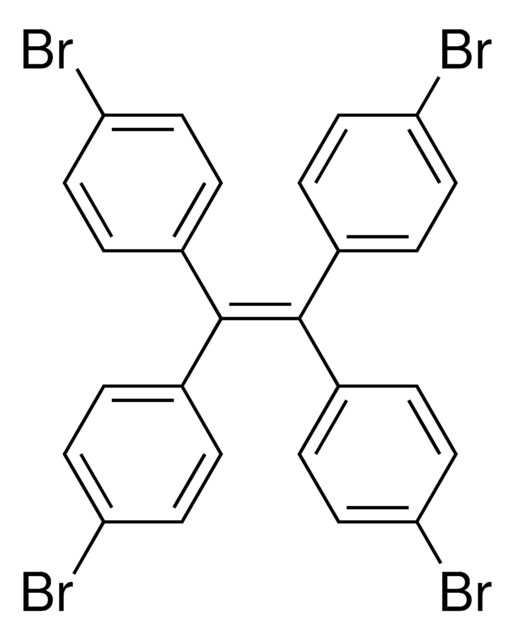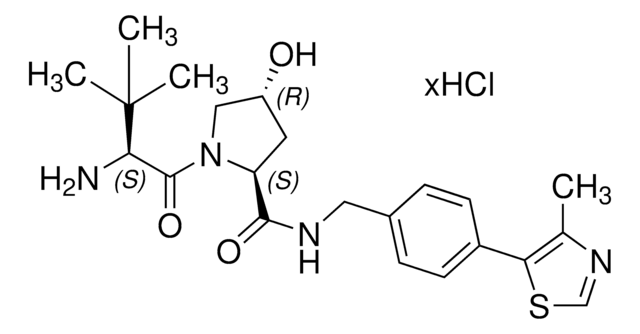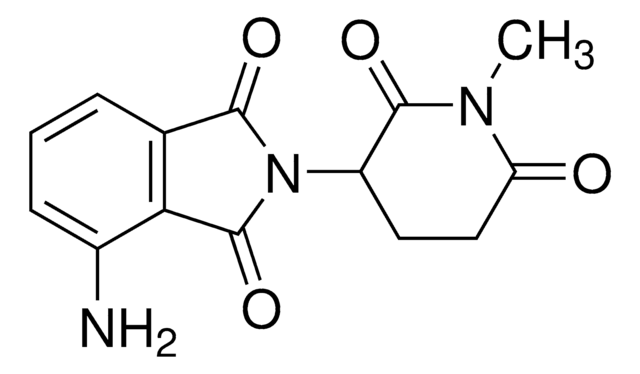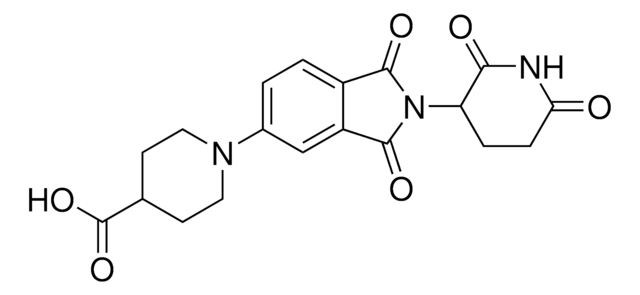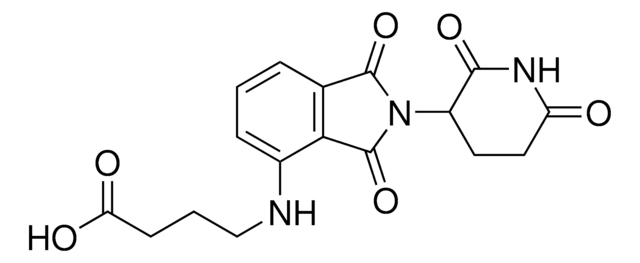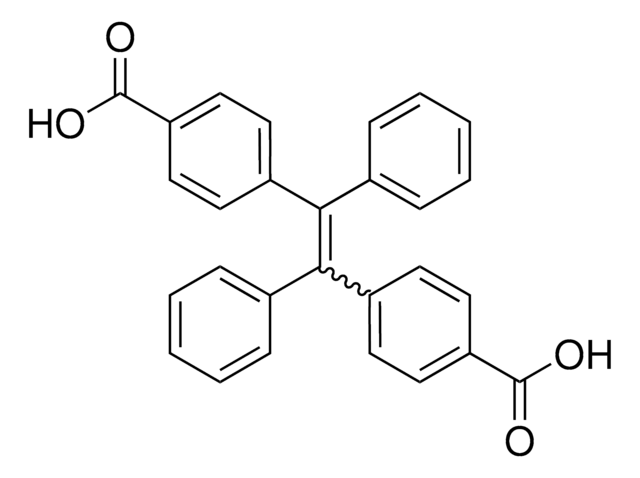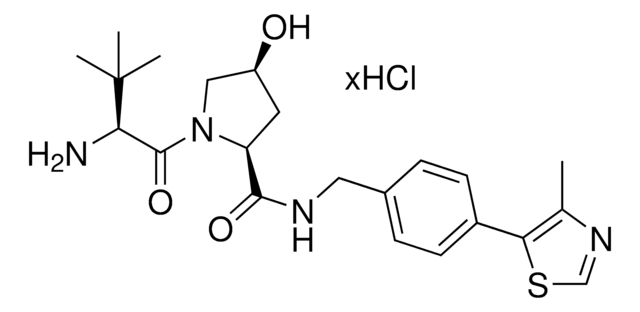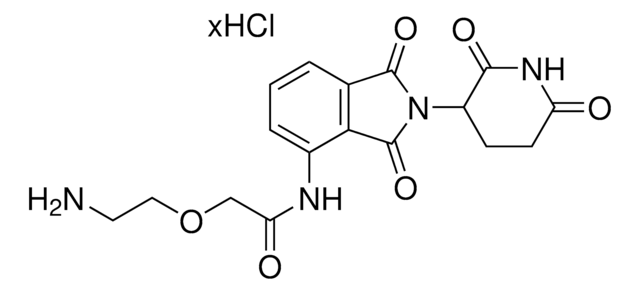901558
Lenalidomide
≥95%
Synonym(s):
1-Oxo-4-amino-2-(2,6-dioxopiperidin-3-yl)isoindole, 3-(4-Amino-1,3-dihydro-1-oxo-2H-isoindol-2-yl)-2,6-piperidinedione, 3-(4-Amino-1-oxoisoindolin-2-yl)piperidine-2,6-dione, E3 Ligase ligand, Ligand for PROTAC® research
About This Item
Recommended Products
ligand
lenalidomide
Assay
≥95%
form
powder
reaction suitability
reagent type: ligand
mp
265-268 °C
storage temp.
2-8°C
SMILES string
O=C1N(C2CCC(NC2=O)=O)CC3=C1C=CC=C3N
InChI
1S/C13H13N3O3/c14-9-3-1-2-7-8(9)6-16(13(7)19)10-4-5-11(17)15-12(10)18/h1-3,10H,4-6,14H2,(H,15,17,18)
InChI key
GOTYRUGSSMKFNF-UHFFFAOYSA-N
Looking for similar products? Visit Product Comparison Guide
Application
.
Other Notes
Portal: Building PROTAC® Degraders for Targeted Protein Degradation
Structure of the human Cereblon–DDB1–lenalidomide complex reveals basis for responsiveness to thalidomide analogs
Lenalidomide causes selective degradation of IKZF1 and IKZF3 in multiple myeloma cells
The myeloma drug lenalidomide promotes the cereblon-dependent destruction of Ikaros proteins
Legal Information
related product
Signal Word
Danger
Hazard Statements
Precautionary Statements
Hazard Classifications
Repr. 1B - STOT RE 2
Target Organs
Blood
Storage Class Code
6.1C - Combustible acute toxic Cat.3 / toxic compounds or compounds which causing chronic effects
WGK
WGK 3
Flash Point(F)
Not applicable
Flash Point(C)
Not applicable
Choose from one of the most recent versions:
Already Own This Product?
Find documentation for the products that you have recently purchased in the Document Library.
Customers Also Viewed
Articles
Partial PROTACs are a collection of crosslinker-E3 ligand conjugates with a pendant functional group for covalent linkage to a target ligand.
Partial PROTACs are a collection of crosslinker-E3 ligand conjugates with a pendant functional group for covalent linkage to a target ligand.
Our team of scientists has experience in all areas of research including Life Science, Material Science, Chemical Synthesis, Chromatography, Analytical and many others.
Contact Technical Service
